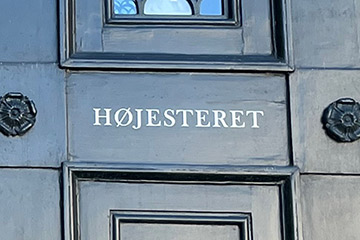The Danish Supreme Court finds for Takeda in a case of general public importance
In a judgment of 19 October 2015 the Danish Supreme Court found for Takeda A/S and established that the company had a right to deduct its costs relating to the intermediary banks in connection with a corporate bond issue in 2005. The judgment is a case of general public importance as it ensures that a corporate bond issue does not result in additional tax costs in connection with traditional bank loans.
The case in brief
In a number of cases the Danish tax authorities have disputed Danish companies' right to deduct various types of finance costs paid in connection with borrowing etc.
In the most recent case Takeda was refused to deduct an amount of approximately DKK 100 million that the company had paid to the two banks handling Takeda's corporate bond issue in 2005 of a total nominal amount of EUR 400 million.
As is usual in connection with a corporate bond issue, the banks' primary role was to assist with the drafting of the prospectus etc, handle the sale of the bonds and guarantee the disposal of the bonds if the sale in the market (underwriting) should fail.
In particular, the Danish Ministry of Taxation submitted that there was not the required connection between the costs relating to the banks involved and the establishment of the debt. The Ministry was of the opinion that the banks had not acted as lenders but on the contrary as advisors and that the primary service provided by the banks had been assistance with the general structuring of the loan transaction. Moreover, the Ministry found that the costs relating to the banks were to be characterised as non-deductible costs, so-called project costs, because the bond issue took place in connection with a private equity fund becoming one of Takeda's owners.
Plesner claimed in general on behalf of Takeda that banks' primary role in any loan transaction is to be the provider of capital and that it is fundamentally the role that the banks are paid for. Despite the fact that in this case the banks had been successful in the sale of the bonds, and as a consequence did not act as normal lenders after the issue, deduction had to be granted as the costs were related to being an intermediary in connection with the loan. At the same time it was emphasised that if Takeda was not granted a deduction, it would create a completely unfounded distortion between a corporate bond issue and the taking out of a bank loan as it would then only be possible to deduct the costs relating to the banks in connection with taking out a bank loan which would consequently gain an (arbitrary) competitive advantage.
The Danish Supreme Court found for Takeda in respect of all its claims
In its reasoning the Supreme Court first upheld that it is not decisive to the right to deduct whether a financial service company acts as an actual lender or as an intermediary in connection with loans in a wider sense. The decisive factor is whether the services are linked to the establishment or repayment of the debt.
The Supreme Court then goes on to state that the amount that Takeda paid to the banks for handling and underwriting the bond issue, including the drafting of the prospectus, must be deemed to be or be equated with a fee, a commission or a front-end fee that are mentioned as examples of deductible costs in the legislative history.
Victory for the wider use of corporate bonds
The judgment is extremely important as it ensures that a corporate bond issue is not subject to an arbitrary additional tax cost compared to traditional bank loans. It means that in a broader perspective the judgment is a victory for the substantial amount of work that has been done in recent years to ensure the wider use of corporate bonds.
Attorney-at-Law, partner Svend Erik Holm conducted the case on behalf of Takeda.







